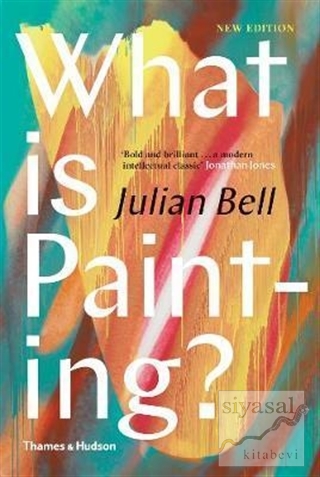
At the turn of the twenty-first century, many felt sceptical or confused about painting's on-going cultural relevance. In this context, Julian Bell's What is Painting? provided an accessible and inspired account of artistic thinking and practice, and of the complexities then facing artists and their audiences. Eighteen years on, the situation is partly reversed. Painting has proved too resilient a practice to be marginalized any longer.
Yet is there any sense of forward momentum for the art? Interrogating the factors that have changed our ideas of painting over the past two centuries, Bell addresses relations between figuration and abstraction and between narrative and non-narrative painting, as well as the waning of conceptual art's dominance and the proliferation of experiments with the physical limits of painting. He also clarifies general concepts such as 'expression' and 'representation'.
Fully revised to provide a fresh look at the situation of painting, this new edition maintains the objective of lucid, historically informative explanation that earned the original edition its status as a text of lasting value. The book provides a general reader's introduction to theories of painting that is not only reliable, but also stimulating and amusing to read.
At the turn of the twenty-first century, many felt sceptical or confused about painting's on-going cultural relevance. In this context, Julian Bell's What is Painting? provided an accessible and inspired account of artistic thinking and practice, and of the complexities then facing artists and their audiences. Eighteen years on, the situation is partly reversed. Painting has proved too resilient a practice to be marginalized any longer.
Yet is there any sense of forward momentum for the art? Interrogating the factors that have changed our ideas of painting over the past two centuries, Bell addresses relations between figuration and abstraction and between narrative and non-narrative painting, as well as the waning of conceptual art's dominance and the proliferation of experiments with the physical limits of painting. He also clarifies general concepts such as 'expression' and 'representation'.
Fully revised to provide a fresh look at the situation of painting, this new edition maintains the objective of lucid, historically informative explanation that earned the original edition its status as a text of lasting value. The book provides a general reader's introduction to theories of painting that is not only reliable, but also stimulating and amusing to read.





















